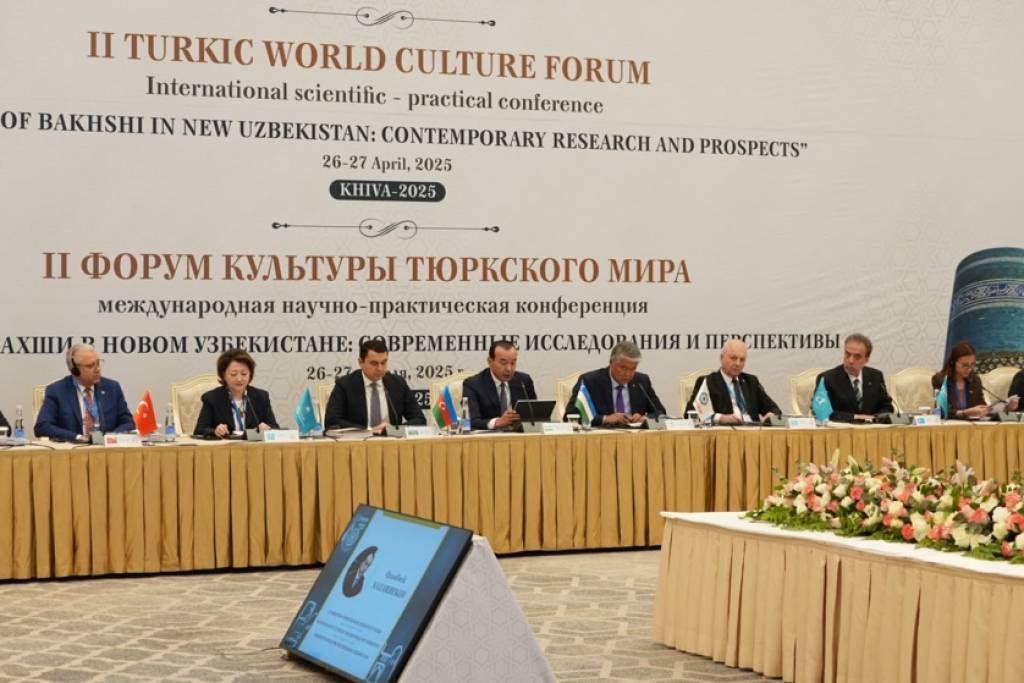
Addressing the 2nd Turkic World Culture Forum and the international scientific-practical conference, President of the International Turkic Academy Shahin Mustafayev noted that holding events uniting the Turkic world in the ancient land of Khorezm has a deep symbolic meaning.
According to him, this fertile land has played a significant role in the history of powerful states such as the Karakhanid Empire, the Khorezmshah state, and the Golden Horde for centuries. Undoubtedly, each historical epoch has left its mark on the rich cultural code of the region.
From majestic archaeological sites to treasures of oral folk art, all this is an integral part of the common heritage not only of Uzbekistan, but also of the Turkic world as a whole. Today, there is an active development of integration between the Turkic states, and the leaders of our countries openly express their political will and common position on various international platforms. Uzbekistan occupies a particularly significant and responsible place in this process. Such important structures as the Organization of Turkic States, the Parliamentary Assembly of Turkic States, the International Organization of Turkic Culture (TURKSOY), the Turkic Academy, the Turkic Culture and Heritage Foundation, as well as the Turkic Investment Fund have been established. All these institutions strengthen ties, bring our countries closer together, and deepen cooperation.
It is important to remember that the common history, spirituality, and culture of our peoples are the basis of these relations. It is in this aspect that cultural interaction becomes significant. Today, independent Turkic states have vast opportunities for cultural cooperation. We must work together to study, preserve, and promote our rich cultural legacy.
In this regard, Uzbekistan, and especially the experience of Khorezm, can serve as an example for other countries. This land gave the world such outstanding personalities as Al-Khwarizmi, al-Beruni, Khorezmshah Jalaliddin, and Abulgazi Bahadurkhan. The region is famous for its scientific heritage, ancient architecture, and unique archaeological sites. The Turkic States should try to include outstanding monuments of the Turkic tangible and intangible heritage in the UNESCO World Heritage List. We should also strive to promote our common culture widely on a global level. This is possible through the creation of joint cultural routes and the development of a single tourist destination. In this context, cultural forums are an effective and convenient platform for discussing current issues in the field. An example is the First Cultural Forum held in 2023 in the historic city of Shusha in Azerbaijan, liberated after 30 years of occupation. The Second Forum, held in the ancient land of Khorezm in Uzbekistan, continues this important tradition.
In this way, a stable common platform is formed, which can become the basis for long-term and deep cooperation processes. The primary mission of our academy is to study the languages, history, and culture of the Turkic peoples. In this regard, we express our full readiness to provide comprehensive support to the idea of a Cultural Forum, which is of great importance for the future of the entire Turkic world.
Aziza Alimova, UzA








